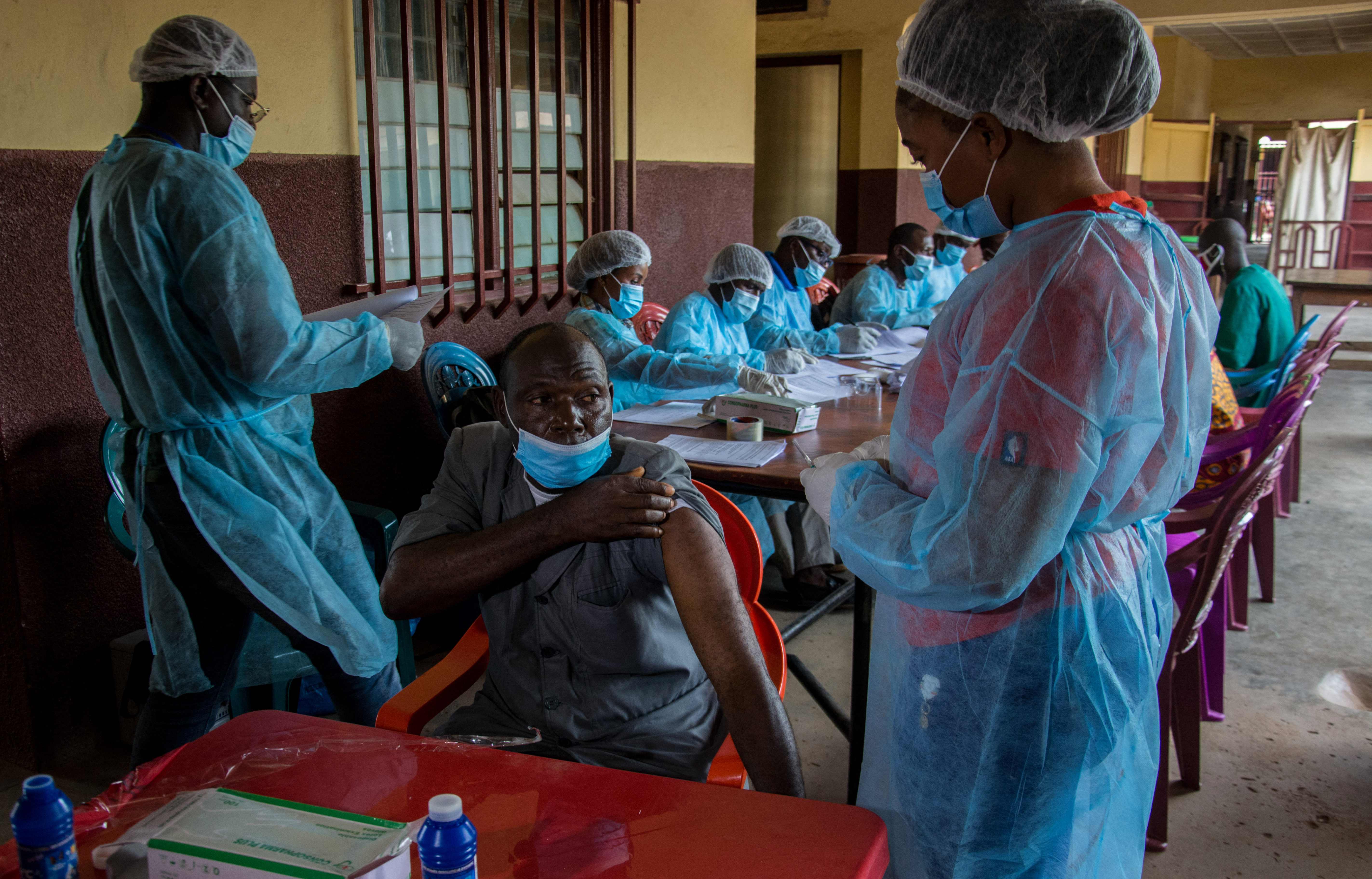‘Immense concern’ as Ivory Coast detects first Ebola case in 25 years
Teenage girl presents with fever after travelling from Guinea
Ivory Coast has declared its first case of Ebola in more than 25 years after a teenage girl suffering from a fever was diagnosed at a hospital in the capital, Abidjan.
The country’s health minister and the World Health Organisation (WHO) announced separately on Saturday that the case had been detected, with the latter’s regional director for Africa expressing “immense concern”.
The 18-year-old girl had recently travelled to Abidjan from neighbouring Guinea, arriving on 12 August.
“The patient was admitted to a hospital after experiencing a fever and is currently receiving treatment,” the WHO said, adding that it was the country’s first case of the hemorrhagic virus since 1994.
Matshidiso Moeti, head of the UN agency’s Africa section, said: “It is of immense concern that this outbreak has been declared in Abidjan, a metropolis of more than four million people.
”However, much of the world’s expertise in tackling Ebola is here on the continent, and Ivory Coast can tap into this experience and bring the response to full speed.”
Pierre Dimba, Ivory Coast’s health minister, said in a statement on national television that it was an isolated case affecting the teenager.
Guinea – site of the 2014-2016 Ebola outbreak, which was the deadliest on record – experienced a four-month Ebola outbreak earlier this year that was declared over on 19 June.
Guinean health authorities announced the outbreak on 14 February after three cases were detected in Gouecke, a rural community in the southern N’zerekore prefecture.
In all, there were 16 confirmed and seven probable cases reported in that outbreak, in which 11 patients survived and 12 people died.
The WHO helped ship some 24,000 Ebola vaccine doses, and supported vaccinations for nearly 11,000 people at high risk of the disease.

“Although this Ebola outbreak flared up in the same area as the West Africa one which killed 11,000 people, thanks to new innovations and lessons learned, Guinea managed to contain the virus in four months,” said Dr Moeti in June.
The WHO said there was no indication the current case in Ivory Coast was linked to that earlier outbreak in Guinea. It said further investigation and genomic sequencing will identify the strain and determine if there was a connection
Guinea early this week also confirmed a first case of Marburg virus in West Africa. Marburg virus is a highly infectious haemorrhagic fever similar to Ebola.
Transmission of both deadly diseases occurs through contact with infected bodily fluids and tissue, while symptoms include headache, vomiting blood, muscle pains and bleeding.
Additional reporting by agencies
Join our commenting forum
Join thought-provoking conversations, follow other Independent readers and see their replies
Comments
Bookmark popover
Removed from bookmarks